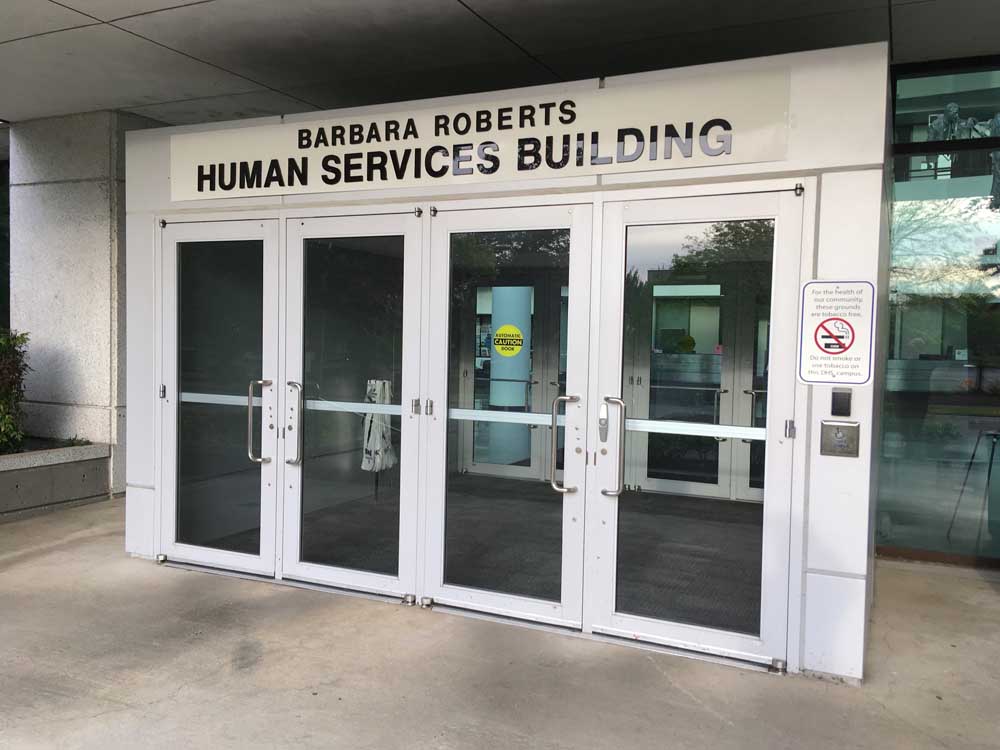Oregon DHS and Disability Rights Oregon settle long-running class-action foster care lawsuit
Published 1:30 pm Friday, May 24, 2024

- The Oregon Department of Human Services headquarters, seen here in 2019.
The Oregon Department of Human Services agreed to a historic settlement in a class action lawsuit filed on behalf of the state’s foster children that will put the state agency under more accountability to improve its care for some of Oregon’s most vulnerable young people.
The state agency, which is responsible for more than 4,600 foster children, has agreed to work with an outside expert to improve in areas like placing children in appropriate households, curtailing bad treatment and abuse and ensuring quality medical and mental health care. Years of work is ahead: The agreement says the outside expert’s role with the agency could last for up to a decade — and potentially be extended.
Trending
The settlement is another chapter in years of scrutiny for Oregon’s beleaguered foster care system, which has come under fire for moving vulnerable children to questionable out-of-state facilities, shuffling them to hotels and hiring outside contractors like Dynamic Life without adequate vetting. Advocacy groups who represented children and the state agency announced the settlement on Friday.
“This case has always been about providing children in the foster care system what they need to recover from trauma and thrive — stability, safety and nurturing from the adults in their life,” Jake Cornett, executive director and CEO of Disability Rights Oregon, said in a statement. “After more than five years, we’re grateful Governor (Tina) Kotek and the Department of Human Services see the promise of working collectively to improve Oregon’s foster care system.”
The agreement ends five years of litigation. Attorneys for advocacy watchdog Disability Rights Oregon and A Better Childhood, a national nonprofit, represented foster children who sued the state in U.S. District Court in Eugene in 2019.
The lawsuit alleged the Oregon Department of Human Services, agency Director Fariborz Pakseresht and Child Welfare Director Aprille Flint Gerner failed to keep foster children safe and free from trauma such as frequent moves among foster homes and a lack of appropriate therapy or other services.
“We are grateful for the willingness of all involved in this litigation to come together to find ways to achieve our mutual goal of improving outcomes for Oregon children and families,” Pakseresht said in a statement. “This agreement is a testament to the progress we have made in child welfare over the past several years and allows us to focus on the important work ahead.”
The case started based upon the record of 10 current or former children in the foster system. A federal judge granted the case class action status in 2022 on behalf of all Oregon foster children.
Trending
Rather than seeking monetary settlements for the children central to the case, the lawsuit pressed the state to make systemic improvements so Oregon is better equipped to serve youngsters in the midst of traumatic experiences.
For five years, attorneys representing the state fought that effort in court and tried to get the case dismissed, using taxpayer dollars to pay up to $18 million in legal fees, primarily from the Markowitz Herbold law firm in Portland.
The agreement comes several months after the state settled another major case filed by former foster children. In December, the Oregon Department of Human Services agreed to pay $40 million to settle a different lawsuit filed by four former foster children who were physically and sexually abused in a home.
Jake Sunderland, a spokesman for the Oregon Department of Human Services, said five years were needed to ensure that Oregon could continue to implement its program that focuses on supporting families and preventing children and young adults from entering foster care in the first place.
“A focus on prevention and family preservation is consistent with national best practice and improves equity,” Sunderland said in an email. “This is not work that can be done overnight.”
Under the agreement, the Oregon Department of Human Services and attorneys for the plaintiffs will pick an outside neutral expert by May 31 to guide the state’s work in the years to come.
The state will contract with the expert to work on meaningful improvements in areas like reducing the rate of children that face maltreatment in the system, improving quality placement and ensuring timely medical, dental and mental health assessments after children are placed in the state’s custody. The state and expert will also work together on lowering the rates at which children exit and reenter the foster care system.
The expert’s first review is due by April 20, 2025. Annual reviews will continue for each year until the expert determines the Oregon Department of Human Services is in compliance — or after 10 years, whichever comes first. The expert could recommend an extension of up to two years beyond that.
The Oregon Department of Human Services also agreed to enter mediation to determine the amount of attorney fees it will owe the plaintiffs for their costs during the case. And the state agreed to pay up to $150,000 annually in attorney fees to Disability Rights Oregon and A Better Childhood for their work during the term of the settlement.
Cooper said the settlement helped the state avoid more legal costs of a trial.








